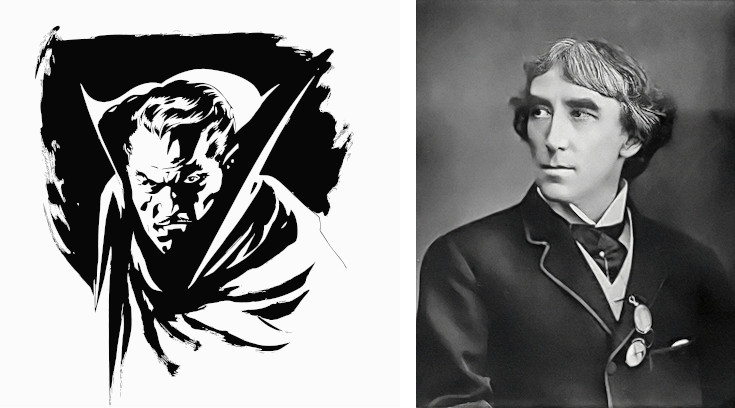
Henry Irving, actor-manager at the West End’s Lyceum Theatre, was powerful, imperious, self-absorbed, and manipulative — qualities that made a fateful impression on his theater’s business manager, Bram Stoker. University of California historian Louis S. Warren writes:
Scholars have long agreed that keys to the Dracula tale’s origin and meaning lie in the manager’s relationship with Irving in the 1880s. … There is virtual unanimity on the point that the figure of Dracula — which Stoker began to write notes for in 1890 — was inspired by Henry Irving himself. … Stoker’s numerous descriptions of Irving correspond so closely to his rendering of the fictional count that contemporaries commented on the resemblance. … But Bram Stoker also internalized the fear and animosity his employer inspired in him, making them the foundations of his gothic fiction.
The two worked together for 28 years. Warren writes, “Understandably, Stoker felt most secure when Irving took an interest in him personally, as he did in the early 1880s; and he became anxious and jealous when Irving turned his gaze to other men, as he did by 1885.”
One contemporary wrote, “To Bram, Irving is as a god, and can do no wrong.”
(Louis S. Warren, “Buffalo Bill Meets Dracula: William F. Cody, Bram Stoker, and the Frontiers of Racial Decay,” American Historical Review 107:4 [October 2002], 1124–1157.)
